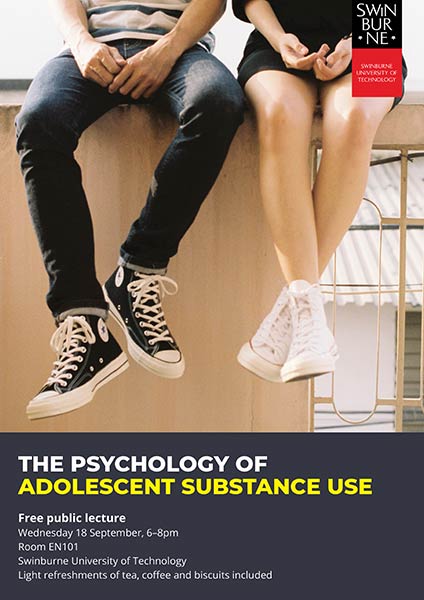The psychology of adolescent substance use

- What are the consequences of substance use in adolescence?
- Are the impacts of early substance use persistent or can they be reversed?
- Are some people more at risk of developing problematic patterns of substance use?
- What can we do to reduce problems associated with substance use?
The physical and social changes during adolescence make young people more likely to engage in substance use but also particularly vulnerable to any effects of these experiences on brain structure and function. In this public lecture, Drs Catherine Orr and Katie Wood will discuss what research has revealed about biological and environmental factors driving substance use in adolescence, and the consequences of substance use for the developing brain and for long-term mental and physical health.
Presenter Biographies:
Dr Catherine Orr is a Lecturer in the Department of Psychological Sciences and a member of the Centre for Mental Health at Swinburne University. Her research in developmental cognitive neuroscience has focused on improving our understanding of factors associated with risk for and resilience against the development of mental health problems in adolescence. Catherine has particular interest in predictors of alcohol and cannabis use and in the transition from recreational patterns of use to problematic patterns of use.
Dr Katie Wood is a senior lecturer and clinical psychologist at Swinburne University and a member of the Australian Psychological Society College of Clinical Psychologists. Previously, Katie worked at Albert Road Centre for Health where she was the team leader of an adolescent day program. She has also worked at Eastern Health Child and Adolescent Mental Health Service. Katie has been in private practice for over 20 years, specialising in working with young people, their families and schools.


